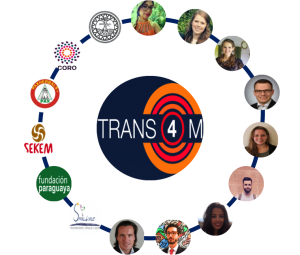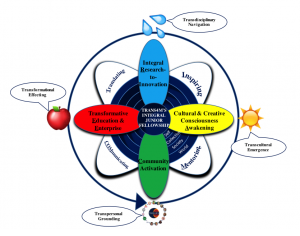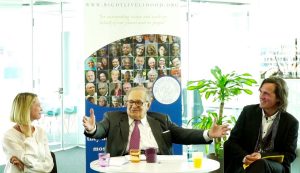Calling: Further Unleashing the Transformative Potential of Trans4m’s Junior Fellowship
The burning issue motivating this research-to-innovation, lead by Maxime Bertocchi, was to explicitly capture and evolve further some of the unique transformative potential still tacitly rooted within the Junior Fellowship community, uniting university students and partner organizations from around the world. The aim was to develop and strengthen its long-term impact and sustainability, when for the first time, six Junior Fellows were co-creating knowledge on the ground with six different integral partner organisations of Trans4m. Leading to very rich interactions and contributions locally and globally, including through the Integral Development course conducted at the University of St. Gallen (Switzerland) and at Trans4m’s headquarters in Geneva and Hotonnes (France), this constellation of Agents of Transformation was indeed releasing an incredible amount of co-creative energy. It thus became crucial to ensure its systemisation and sustainable renewal.
Therefore, the objective of the six months’ project was to co-create an Integral Junior Fellowship Model that could be lived by current and future generations of Junior Fellows within Trans4m and its partner organizations, and also be shared widely outside of the organisation, allowing society to benefit from and contribute to the evolution of Trans4m’s integral movement. Thereby, the co-creation of an appealing communication approach including Trans4m’s website, a series of integral films and brochures will contribute to this objective, as well as the further evolution of Trans4m’s Integral Development course as a platform of future Agents of Transformation.
Innovation Ecosystem: A local-global Network of Junior Fellows and Partner Organizations
In order to fully realise the co-creation process, a strong innovation ecosystem team was shaped with local and global actors, who shared their profound experience and knowledge of the different contexts in which the community is engaged. Under the stewardship of Alexander Schieffer – director and co-founder of Trans4m – six active Junior Fellows of Trans4m were included in the ecosystem as well as important figures from their host organizations. These were not only influential in exploring success factors of the Junior Fellowship, but enabled to institutionally ground the research-to-innovation in order for it to have a real relevance and impact. Faten Hamouda, student of organizational psychology supported the process on a continuous base, offering the ecosystem with a rather global perspective, leading to joint “local-global” visions that always built on Trans4m’s Integral Worlds approach. Finally, the participants and contributors to the Integral Development course, which Maxime Bertocchi assisted provided very interesting insights.

Integral Innovation: The Integral Fellowship Model
The Integral Research design was used as a transformative engine to bring about integral innovation. Drawing upon each Junior Fellow and partner organisation’s integral approach and calling for more holistic forms of education, Trans4m’s cutting-edge Integral Worlds approach, with its four Realities, Realms, Rounds and Rhythms built a profound inspiration for the co-creation of Trans4m’s Integral Junior Fellowship “Flower”.

Often used a metaphor for human systems and as ritual, spiritual, medicinal and food entity, the flower has inspired the depiction of the following model, which helps to release the GENE-I-US individuals, organisations and societies with CARE through COMMIT-ment.
The GENE process (Grounding, Emergence, Navigation and Effect) represents the underlying orientation of the Integral Junior Fellowship: Responding to the transpersonal (too individual), transcultural (overly monocultural), transdisciplinary (very unidisciplinary) and transformational (excessively untransformative) imbalances of mainstream University education. These integral Rhythms thus energise the overall model, represented by the evolution of a flower, from seed to fruit.
Concretely verbalising the GENE process, the CARE process is represented by the four colorful petals, reaching out to four metaphorical directions (south, east, north, west). These Realms integrate different and complementary Realities, which together help to fully embodying and sustaining, collectively achieved innovations. It starts at the core of the Integral Junior Fellowship as an inspirational and integrative educational tool. Following that, Community activation Awakens cultural and creative consciousness, itself triggering integral Research-to-innovation, resulting in transformative Education and enterprise. As an ever-evolving process, this transformation will then activate an even larger community and so on.
Finally, each CARE-ing community member embodies his/her COMMIT-tment towards more holistic forms of education with the help of four Roles. COMmunicating with the members of the overall ecosystem through an efficient Mentoring system results in a better cultural understanding of a particular context. It will, in turn, Inspire cutting-edge innovation to take place and later be Translated into concrete action, which can finally be communicated within and outside the Integral Junior Fellowship constellation to induce new engagements. This process also follows an ever-unfolding cyclical process, as a flower continuously gives birth to new flowers, through the seeds of its fruits.
Finally, the newly developed model offers an authentic and culturally resonant alternative to a university education system, which is predominantly designed in the North-West. It suggests concrete ways for Trans4m’s Integral Junior Fellowship to become an even more powerful community of Agents of Transformation by further reaching out to society.
Integral Impact: Increased Fellowship Impact via a Strong Fellows Community
The numerous conversations with members of the innovation ecosystem led to the conceptualisation and integral framing of the Junior Fellowship, which can be understood, co-owned and lived by future generations of Junior Fellows. Alexander Schieffer sees it as “a significant contribution for connecting education to society’s most burning issues.” Silvan Büchler, a Junior Fellow who was part of the innovation ecosystem, furthermore loved: “Being part of an integral community of inspiring change-makers who together co-create a more balanced and sustainable world.” Zarah Kronbach and other Junior Fellows considered it as “a pioneering collective initiative”, to which they wish to contribute in the long run as mentors for future generations of Junior Fellows.

An inspiring short film, as well as richly-illustrated integral brochures addressed to current and future Junior Fellows and partner organizations with a clear focus on the Integral Junior Fellowship were co-created in addition to the Bachelor Thesis. The launch of Trans4m’s new website, in which these tools will be embedded will enable the newly articulated knowledge to be shared inside and outside of the community. Finally, the use of co-operative inquiry, a participatory form of action research methodology, enabled this research-to-innovation journey to activate a process of educational renewal towards ongoing transpersonal, transcultural, transdisciplinary and transformational innovation within Trans4m’s integral community. The bachelor thesis can hence be regarded as a catalytic tool for continuous individual, organisational and societal impact.

